As many parts of the country brace for snow and heavy rains, guest contributor, Lee Flynn, shares on the blog today: How to Keep Your Family Safe During Extreme Winter Weather.
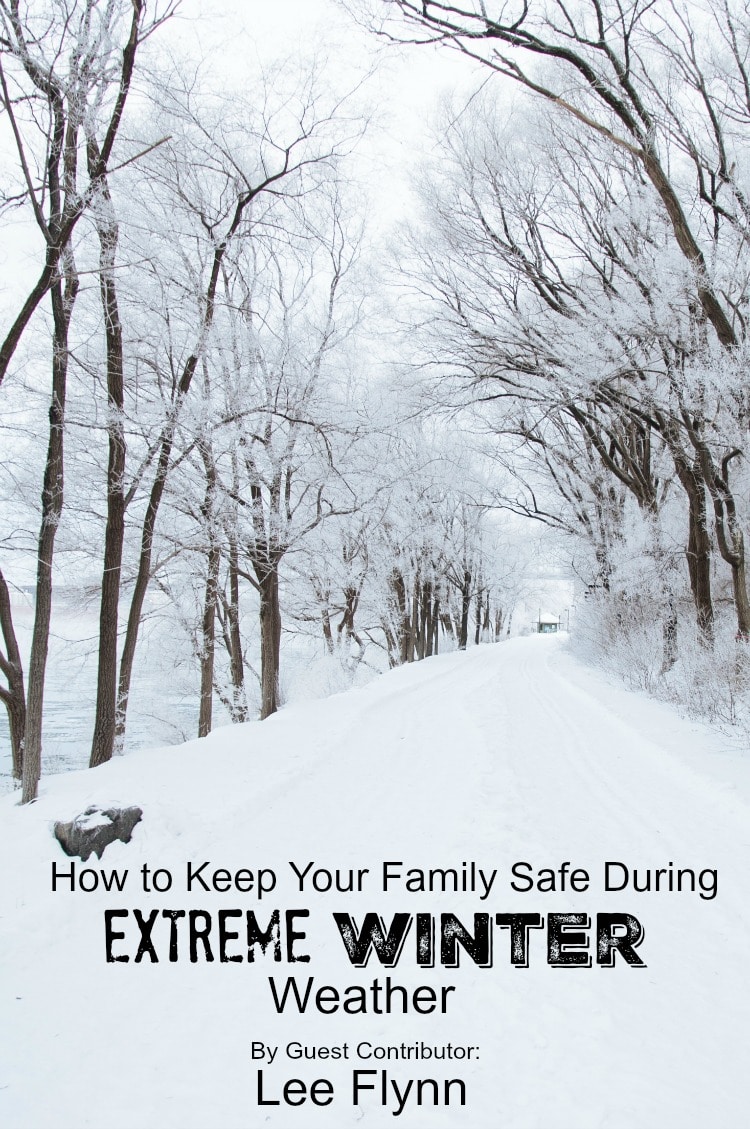
It seems like every year some part of the country experiences a winter weather disaster it’s totally unprepared to handle. People are trapped in their homes for days by snowdrifts, and all travel and activity comes to a complete halt. If you live in an area that is affected by this kind of weather, it pays to plan ahead so you can survive a winter disaster in the comfort of your own home. So how do you keep your family safe during extreme winter weather?
Food and Drink
You should have a cache of shelf-stable food in case you have to go multiple days without leaving your home. Make sure that a fair percentage of your emergency food stores can be eaten without cooking. It is quite common for the power to go out during winter emergencies. You can buy emergency food storage sets that come with dozens of freeze-dried meals that can be prepared by simply adding water. Especially during pregnancy, even if you are planning for infant adoption, it is important to be prepared for any emergency situation even if that means stocking up medicines.
Water is essential for surviving even for a couple of days. Think about how long you could conceivably be trapped in your home by winter weather, and store one gallon of water per person per day. Leaving all of your taps slightly open will reduce the risk of your pipes freezing.
Heating
If you have heating that relies on electricity or natural gas service that could be lost during a disaster, you will want to have backup kerosene space heaters. Keep plenty of clothing and blankets made of warm material like thick fleece fabric in case your heating goes out. If you end up having to use space heaters, keep them at least three feet away from furniture and draperies and make sure your smoke alarm and fire extinguisher are in working order. Do not use the stove to heat your house. It is difficult for emergency services to respond quickly during extreme weather events, so it is very important to make sure you don’t accidentally start a house fire.
Lighting
Flashlights and battery powered lamps are preferable to candles because they are less likely to start fires. Keep plenty of extra batteries around in case you need to rely on these light sources for a long time. If you absolutely have to use candles, don’t let them burn unattended.
Communication
Landline phones are often the first things to fail during winter emergencies. Cell phones are more likely to remain working, but to be completely sure you can hear important messages about the weather, you should get a battery-powered or hand-cranked emergency radio. Do some research about the method your local government uses to update its citizens about the weather. Your should also make a plan for how to reach out to your family if the emergency starts while you are apart.
Other Supplies
You will want to have lighters and matches for lighting fireplaces, kerosene heaters and candles. If the water goes out, you won’t want to waste any on washing, so you should store plenty of paper plates, plastic utensils, and napkins. If you have a pet, keep an emergency food store for them that will last them as long as yours will. Toilet paper, paper towels, hand sanitizer and extra toothpaste are all essential for maintaining proper sanitation. You should also have a basic home first aid kit to treat cuts and other small medical issues.
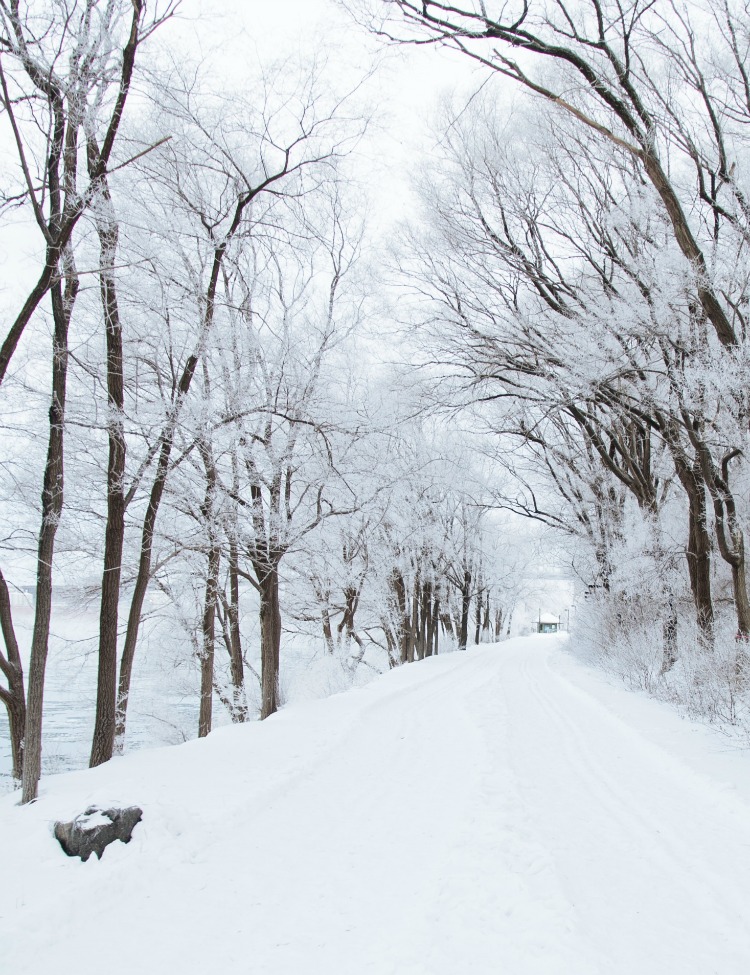
The prospect of being trapped in your home for days or even weeks by inclement weather is scary, but as long as you are prepared you can weather even the most severe winter storms in relative comfort. The injuries and deaths that happen every time a big storm hits could all be prevented by adequate planning. Keep your family safe during extreme winter weather – don’t put you and your family in danger by failing to stock up on the supplies to make your home self-sufficient for at least a few days.
 Author bio – Lee Flynn is a freelance writer. Through small local workshops and articles, Lee trains and teaches others on home preparation, healthy living, food storage techniques and self reliance. Follow him on twitter @foodstorage101.
Author bio – Lee Flynn is a freelance writer. Through small local workshops and articles, Lee trains and teaches others on home preparation, healthy living, food storage techniques and self reliance. Follow him on twitter @foodstorage101.
Want to read more about emergency planning and preparedness? Check out these earlier posts from Toot Sweet 4 Two’s archives:
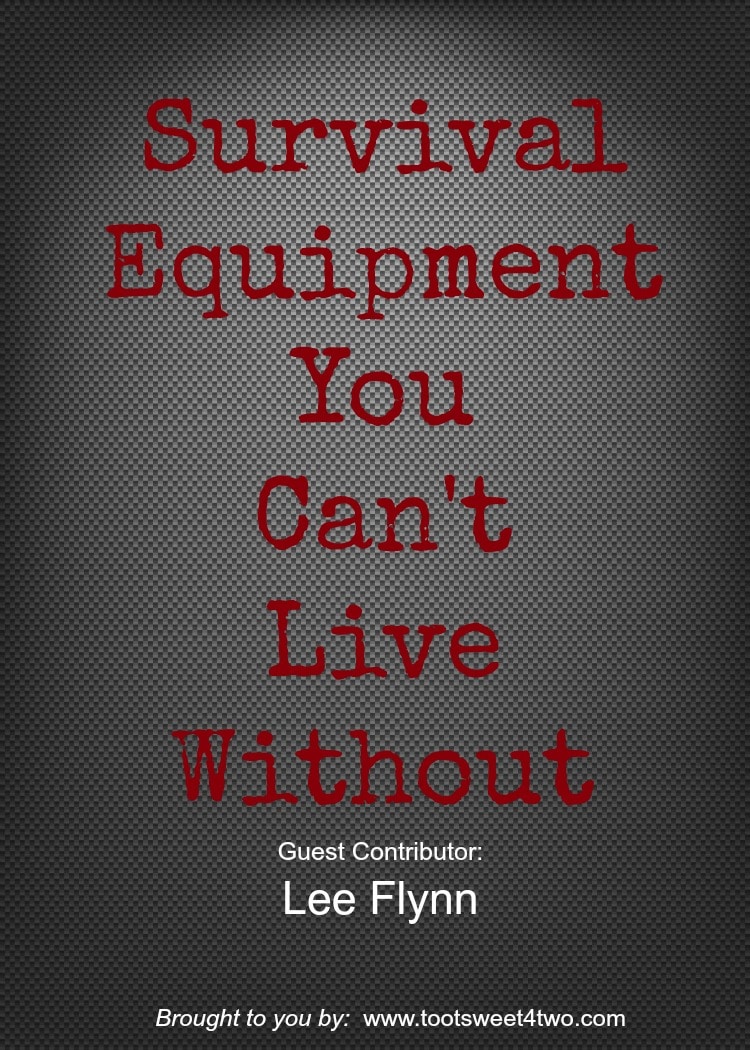
Survival Equipment You Can’t Live Without by guest contributor, Lee Flynn
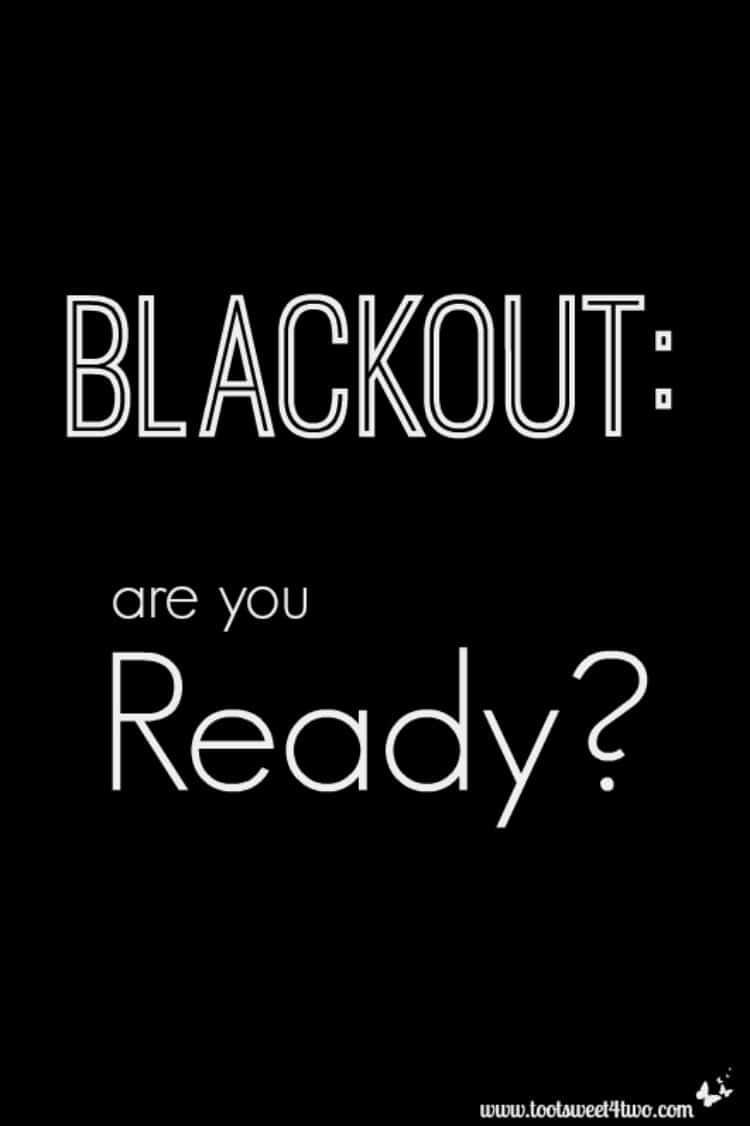
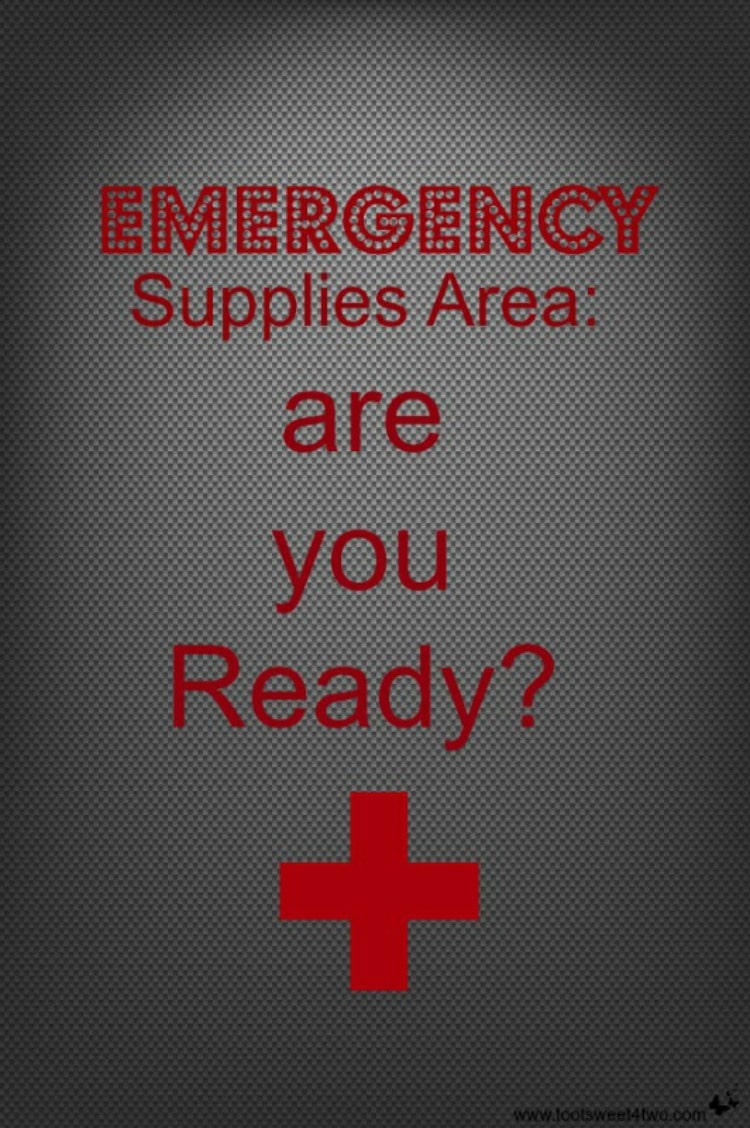
Leave a Reply